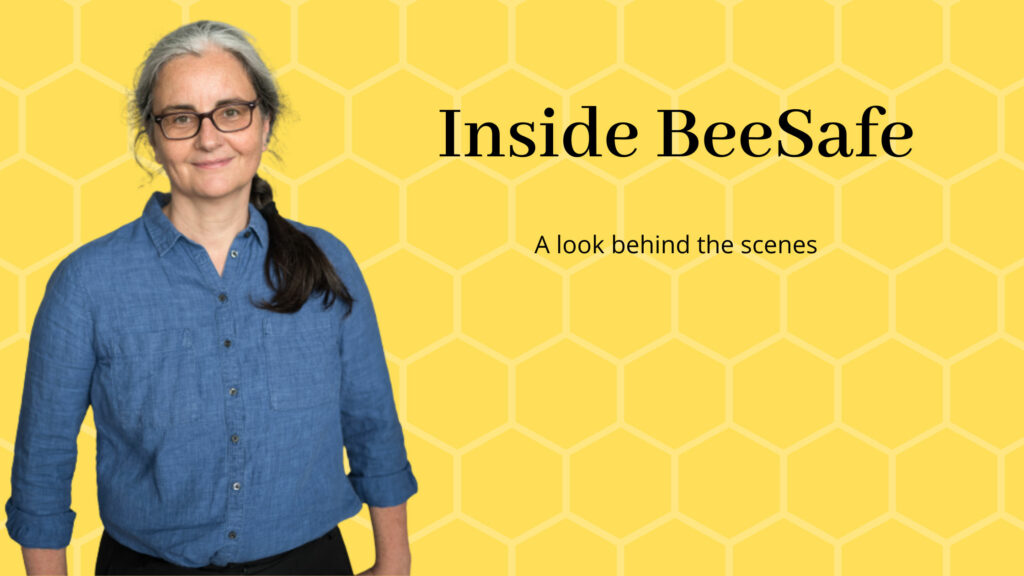I’m travelling for bee health for quite a while now. I don’t really know where to put the starting point… Maybe already in 1994, when I studied for a year in Chile and had an encounter with a Bombus dahlbomii queen, which gave my life a turn. But certainly at the latest when I travelled to Thailand and Brazil for my PhD. In that time, I began to study the relationship between honey bees and varroa. As you know something that still is part of my life.
Last weekend, I came back from a trip in the name of bee health again. Giving talks about different aspects of bee health is part of my business. Not the part with the greatest profit, but something I take very seriously. There are a lot of issues out there and black and white won’t help us or give results. I’m convinced that explaining science and the solutions it offers helps. Keeping honey bee colonies healthy, as everything, needs to be learned and understood.
Anyway, back to my trip. It made me think about a few things, changed my perspective. As travelling always does. “Travelling educates” is a saying in German. It continues to do so even if you’re doing it since a long time. And this one was special.
Talking to beekeepers in Bulgaria…
It began with a trip to Bulgaria. There was a training event for beekeepers in Hisarya, a small city famous for its spa in central Bulgaria. Dr. Ivelin Marinov, who invited me, organizes these events regularly and is very engaged in educating beekeepers. So, we share the mindset of transmitting knowledge. He had invited me already during the pandemic to do an online seminar on varroa. Obviously, I was very glad to have the opportunity to be there in person this time.
The plan was to talk about the challenges – present and future – for sustainable beekeeping this time. After all, we had covered varroa already. However, talking about the very practical challenges they face in Bulgaria, I changed the focus of the talk. As the largest bee health risk worldwide, it was important to explain why compliance pays off. And to discuss all this in the light of good practices. I’ll come back to that.
The ripple effect of learning
I don’t speak any Bulgarian, so Dr. Marinov had to translate my talk. But there were very focussed faces and I got some detailed questions at the end. So, hopefully the intervention was useful.
In my opinion, teaching is the most intense way of learning, too. It forces you to disconnect from your ego and focus on the people you have in front of you. It’s very rewarding seeing the light of understanding lighting up in some eyes. It will never be all of them. But another belief of mine that knowledge has a ripple effect. Meaning that one beekeeper who applies what he understood in a lesson will tell others. And then they will try. And so on. Finally, this will also open the door for more learning. Which then starts the next ripple effect…
… and fellow scientists and some beekeepers in Bologna
Dr. Marinov was kind enough to show us (me and the Hungarian colleague Miklos Sorfozo) around in Hisraya and Sofia. So, I also learned a little bit about Bulgarian culture and history – Dr. Marinov is very knowledgeable in that, too!
After these adventures in Bulgaria, I travelled to Bologna, in Italy. The thing I learned here was different and similar at the same time. Same, same, but different, as they say in Thailand. I was there for a project meeting, MEDIBEES. I do the social media communication for them, but more about this another time.
What struck me in the context of learning, was something else. In this project, there are nine partner organizations in eight Mediterranean countries. Eight scientific institutions and the Jordanian Beekeepers Union. I know, Jordan isn’t exactly a Mediterranean country, but that’s not the point.
That’s something different: After three very intense days of discussing the work from last year and planning the season ahead, a representative of the Jordanian beekeepers stood up and said: “We’re still waiting for the results.”
From data to applicable practices
Fair enough. The discussions were about experiments, lab work, and data analysis. Nothing that could seem directly applicable to beekeeping practice. That’s maybe part of the dilemma science often has: the connection to its application isn’t always obvious. On the other hand, recommendations, good practices, etc. need a foundation on real data, not only single experiences. Which scientists call “anecdotal”. We need a large amount of data to know reality and give good advice. And this takes time.
So, one of the learnings I took from this meeting was that we (in the sense of “we, scientists”) still have to communicate the process of doing science and how to transform it in an application. It’s not just deep thoughts that directly transform into tools. But without the lab and field work, the statistics, and the travelling for bee health meetings every advice would be just a guess. Not sustainable or even helpful.
Theory and practice are just two sides of the same coin, to add a third belief of mine. And both sides need a lot of knowledge, which partly overlaps but also has different expressions. None of these two sides is more valuable or important than the other. We could explain this in the meeting. But how to do this better is something that currently is keeping me awake at night. I’ll try better in the future.
By the way…
If you want to learn more about MEDIBEES follow the project on Facebook, Instagram, or LinkedIn. Or just search for #MEDIBEES on these channels. And if you think I should be travelling for bee health also to your country, just contact me with the form below.


